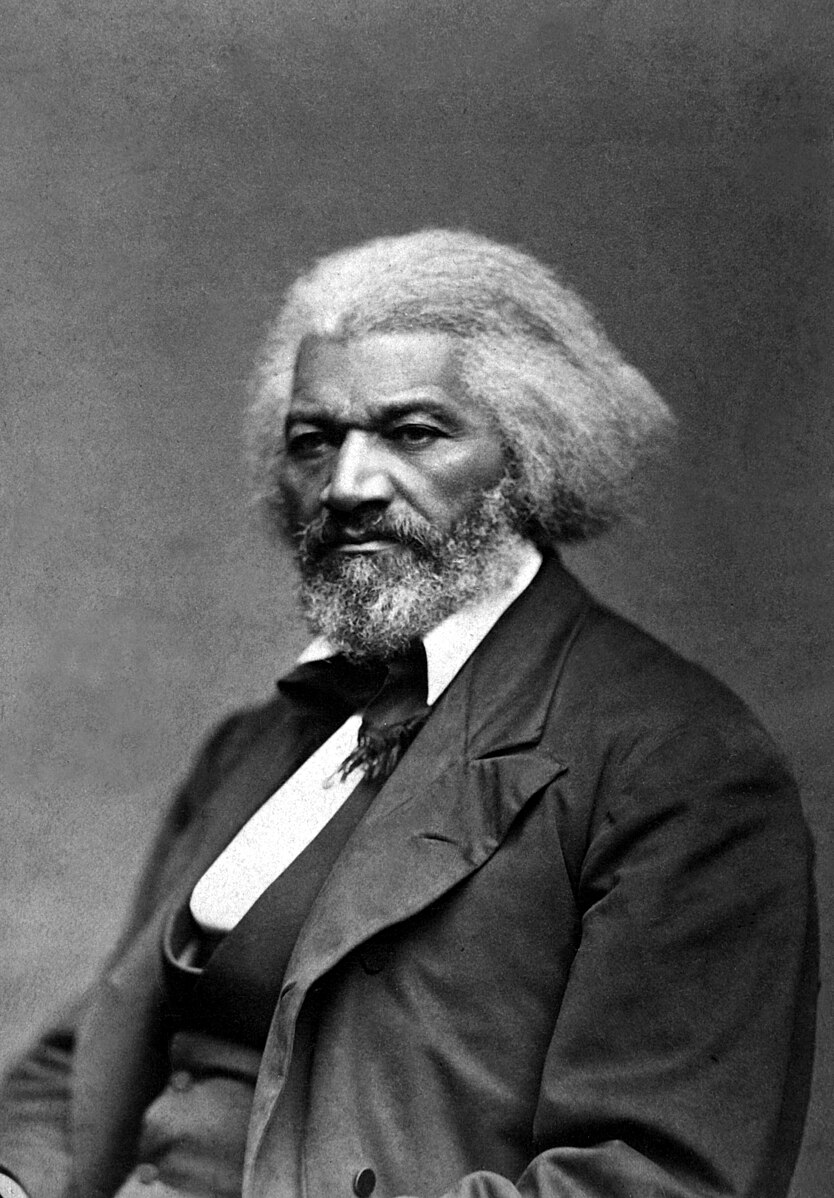Author Bibliography (in progress)
Douglass, Frederick (c.1817/1818-1895)
BIOGRAPHICAL NOTE
 Frederick Douglass was born into slavery as Frederick Augustus Washington Bailey in February 1817 or February 1818. He is the author of the best-known US slave narratives of the nineteenth century. As in many Abolitionist testimonies, Douglass's references to nonhuman animals typically compare the situation of the human slave with that of the farm animal or contrast the hierarchical relationship between the slave and the pedigreed horses kept on the plantation. Douglass observes that, under slavery, the master dominates the slave and the slave is supposed to dominate the farm animal. When Douglass mentions meat, it is often in reference to the poor quality of food that slaves and freedmen were given, or the high price that the freedmen of the south had to pay for food. Overall, Douglass's work is relevant to ethical veganism for his references to the cruelty of prize-fighting and the various similarities he identifies between himself and oxen, camels, and other “burden-bearing” animals. Frederick Douglass died on 20 February 1895.
Frederick Douglass was born into slavery as Frederick Augustus Washington Bailey in February 1817 or February 1818. He is the author of the best-known US slave narratives of the nineteenth century. As in many Abolitionist testimonies, Douglass's references to nonhuman animals typically compare the situation of the human slave with that of the farm animal or contrast the hierarchical relationship between the slave and the pedigreed horses kept on the plantation. Douglass observes that, under slavery, the master dominates the slave and the slave is supposed to dominate the farm animal. When Douglass mentions meat, it is often in reference to the poor quality of food that slaves and freedmen were given, or the high price that the freedmen of the south had to pay for food. Overall, Douglass's work is relevant to ethical veganism for his references to the cruelty of prize-fighting and the various similarities he identifies between himself and oxen, camels, and other “burden-bearing” animals. Frederick Douglass died on 20 February 1895.
PUBLICATIONS
The Heroic Slave. 1853. Lincoln, NE: Zea Books, 2022.
“John Brown. An Address by Frederick Douglass, at the Fourteenth Anniversary of Storer College.” Dover, NH: Morning Star Job Printing House, 1881.
“Lecture on Haiti.” 1893. Frederick Douglass Papers. Library of Congress.
“Lecture on Trip to Europe.” 1887. Frederick Douglass Papers. Library of Congress.
My Bondage and My Freedom: Part I. Life as a Slave, Part II. Life as a Freeman. New York: Miller, Orton & Co., 1857.
Narrative of the Life of Frederick Douglass, An American Slave. Boston: Anti-Slavery Office, 1845.
“Oration by Hon. Frederick Douglass, on the Occasion of the Second Annual Exposition of the Colored People of North Carolina.” 1880. The A.M.E. Zion Quarterly Review Vol. V no. 2 (July 1895): 150-177. Frederick Douglass Papers. Library of Congress.
Last updated on July 4th, 2024
SNSF project 100015_204481
@VLS@veganism.social | VeganLiteraryStudies | @veganliterarystudies | @vegan_lit_studies
